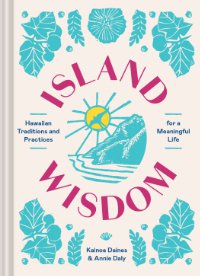The Hawaiian Way to Get Invited Back Everywhere You Want to Go
 The Koʻolau Range on O'ahu is a National Natural Landmark. Photos by Liz Barney.
The Koʻolau Range on O'ahu is a National Natural Landmark. Photos by Liz Barney.
What's the best way to ensure you get invited back to a place you've been? Leave a good impression when you leave. In their new book, Island Wisdom: Hawaiian Traditions and Practices for a Meaningful Life, journalist Annie Daly and travel industry exec Kainoa Daines explore the four foundational principles of Hawaiian life: aloha (love), ʻāina (land), mo‘olelo (stories), and ‘ohana (family). It's a lovely book, brimming with timeless wisdom and practices and beautiful photos. This excerpt from chapter on Āina includes good-visitor guidelines that are golden rules for pretty much everywhere you go — a new country, the next town over, your friend's house for dinner.
(By the way, Annie also wrote Destination Wellness: Global Secrets for Better Living Wherever You Are, which we excerpted here.)
‘ĀINA
(LAND)
He ali‘i ka ‘āina;
he kauā ke kanaka.
The land is chief; people are its servants.
If we take care of the land, the land will take care of us.
Hawaiians are not just connected to the land; they believe they are the land. They are the trees; they are the plants; they are the wind; they are the forests. And this one-with-the-land mentality is one of the quintessential pillars of Hawaiian thought: aloha ‘āina.
Loosely translated, this phrase means “a love of the land.” The idea dates back to the fifth century CE, when the Polynesians originally arrived on the islands. Because Hawai‘i is quite literally the most isolated landmass in the world, everything that Hawaiians needed had to come from the surrounding land and sea. Knowing this, they developed and cultivated all sorts of intelligent systems and philosophies to maintain their connection to the land and ensure that it would give them what they needed.
And it worked. Ancient Hawaiians were able to not only survive but thrive on their own for thousands upon thousands of years. In many ways, they were the original sustainability experts. And the best part of all? Not only are their land lessons and environmental wisdom still applicable to this day, they’re actually more important than ever, as the entire planet is in dire need of some aloha. Here are some of the biggest eco-minded secrets we can all learn from traditional Hawaiian wisdom.
MĀLAMA 101
Mālama: to take care of, to tend to, to preserve, and to protect
Hawaiians will often tell you that it is your kuleana (responsibility and privilege) to mālama the land so that it will mālama you back, as it did for their ancestors. But understand: The concept of mālama is not limited to the land itself. “Everyone can embody mālama even if you’re not taking care of the actual land every day,” farmer Joe McGinn tells us. “It’s really about the idea that we all have a responsibility to mālama each other, to care for each other as people in addition to the food and the land around us. We all have a responsibility to put in the work to care for all the life around us.” That’s what Hawaiians did and still do to this day, and it’s a philosophy that extends to the rest of the world too—even those who aren’t living on the same soil. We’re all in this together.
How to Mālama Wherever You Go
Get to know the local language and culture.
Learn some key words and phrases in the local language before you go somewhere new. This is a sign of respect.
Ask permission to enter the places you visit.
Don’t forget to leave them better than the way you found them.
Refer with respect.
For example, Hawaiian refers to Native Hawaiians and/or the Indigenous culture, endemic plants, and animals. Non-Hawaiians who live there and identify with the land are simply called locals (or kama‘āina). Do your best to learn about the appropriate distinctions wherever you are.
Read and follow signage.
It’s there to keep both you and the land safe. Stay on the path, and avoid tagging sacred and secret places on social media — not everything is meant to be shared.
Drive with aloha.
Locals in Hawai‘i are not aggressive drivers and usually let each other pass and enter lanes freely. You’ll feel better for it.
Bring something with you.
If you’re invited to someone’s home, always bring something with you. It’s a sign of respect for your host. Food is often a safe option, as is a local gift from your home.
Don't Stop There. Read the Whole Book
Buy Island Wisdom: Hawaiian Traditions and Practices for a Meaningful Life from your preferred bookseller: bookshop.org or Amazon.com.
Reprinted with permission from Island Wisdom: Hawaiian Traditions and Practices for a Meaningful Life, © 2022 Annie Daly and Kainoa Daines. Published by Chronicle Prism.
Everything on Fathom is independently selected by our editors. If you shop through a link on our website, we may earn a commission.

